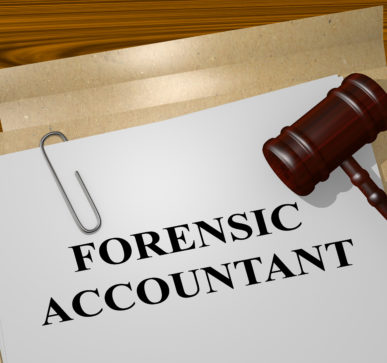The published goal of the Paycheck Protection Program (PPP) loan program is to assist small businesses to remain open during the Covid-19 crisis and to reduce the rate of unemployment. The loans provide a direct incentive for small businesses to keep their employees on the payroll. The SBA under certain circumstances will forgive all or part of a PPP loan based on the count of full-time employees maintained on payroll, wage levels for eight weeks and if the money is used for at least 60% for payroll. The balance may be used for rent, mortgage interest, or utilities.
There will be Audits before PPP Loan are Forgiven
Treasury Secretary Steven Mnuchin has stated that certain businesses that borrow money through the PPP can expect to be audited before the loans are forgiven. The reality is that the funds under the first round of the PPP exited the banks quickly due to pressure to process them rapidly, and many banks with the encouragement of the U.S. Treasury, “skipped” standard Know your Customer and Loan Due Diligence Procedures. The risk was compounded when Banks began accepting loan applications from Borrowers without a pre-existing banking relationship.
Under the PPP, borrowers make “good faith” certifications that:
- Current economic uncertainty makes the loan necessary to support their ongoing operations.
- The funds will be used to retain workers and maintain payroll or to make mortgage, lease, and utility payments.
- They have not and will not receive another loan under this program.
- They will provide documentation to the lender that verifies the number of full-time equivalent employees on payroll and the dollar amounts of payroll costs, covered mortgage interest payments, covered rent payments, and covered utilities for the eight weeks after getting the loan.
- All the information provided in their application and in all supporting documents and forms is true and accurate.
Knowingly making a false statement to obtain PPP loan may be punishable by law
If a PPP loan borrower fraudulently receives and/or uses proceeds of a PPP loan, the U.S. government is authorized to pursue criminal charges against the borrower. Regrettably, there are “Bad Actors” such as criminal entities that posed as legitimate new customer applicants. The American Institute for Certified Public Accountants (AICPA) identifies “Bad Actors” under the PPP as:
- Identity thieves may pose as valid business owners in order to submit bogus applications to lenders. Depending on when this fraud is discovered, the victim businesses may be required to certify how funds were utilized, and may be subject to criminal penalties,
- Foreign-based criminals may submit fraudulent applications. Any funds received will quickly be transferred abroad, making it impossible for the US government to recover that stolen money.
- Money Launderers may commingle funds from criminal enterprises to exploit weaknesses in the PPP program
Forensic Accounting will be critical component of the PPP Loan audit process
Forensic Accountants (FA) would assist with determining the “good faith” accuracy of a borrower’s application by examining payroll records and expense documentation for assisting with the loan forgiveness process. This could include assessing if PPP Loan Borrowers maintained and retained auditable contemporaneous records and documentation of expenses.
Although the U.S. Treasury typically relies on lender Banks to audit SBA guaranteed loans, the auditing process of the PPP loans may be overseen by the SBA’s Office of Inspector General (OIG), a U.S. Government independent oversight office. Because of the volume of auditable PPP Loans, FAs can be an invaluable tool in performing selected PPP loan audits before the related SBA audit statute of limitations period expires. A PPP loan could be audited after being approved, or during the forgiveness portion of the process.
Lenders that have PPP loan portfolios ought to get a head start in the review and audit of their loan portfolios before the SBA engages in an audit. Lenders could get stuck with loan portfolios that will not “be forgivable” by the SBA; increasing the risk of loan defaults and write-offs.





